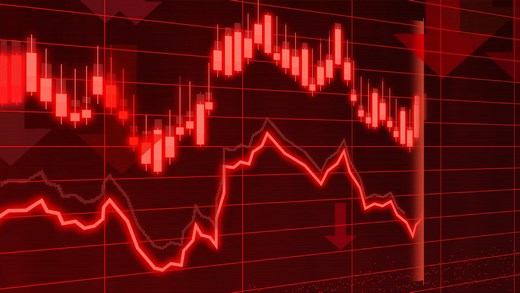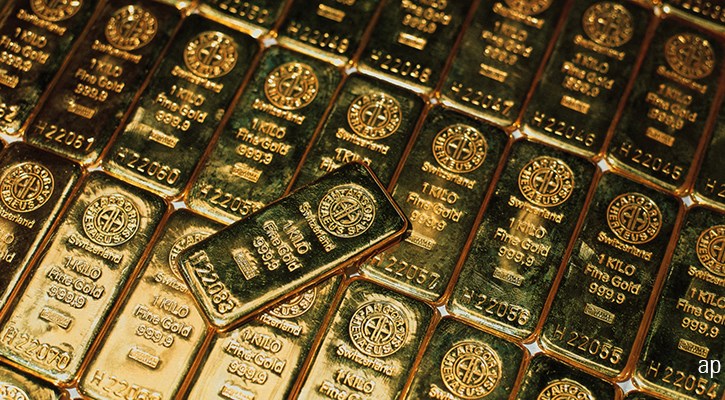
Halfway through Lockdown 2.0 and it is difficult to know the long-term effects on the UK economy. While containing the virus is a top priority for the Government, many people point out that this must be balanced with protecting business. And despite recent good news on a possible vaccine, experts say it could be another year before we are back to normality.
The UK is widely thought to be on track for a double-dip recession and there are fears for retailers who are unable to take advantage of the usual festive shopping season. So what does this mean for investors?
Morningstar's Christine Benz says during the year events have been unfolding so quickly and so are policies designed to assist people who are facing economic hardship as the result of COVID-19 — policies related to small businesses, unemployment, taxes and retirement planning. “These are all complicated issues, so one of the greatest services that advisors can provide at this time is to sift through newly available information and help their clients determine what, if any, implications there are for them.”
She also suggests not to try to time the markets and chase ‘hot stocks’. “Individual stocks are terrible investments for people just starting out. We haven’t talked enough about how poorly many small investors are apt to do with individual-stock purchases, especially if they’re just learning.”
She adds: “It makes sense to have more of a globally diversified equity portfolio. You can buy a total world stock index fund — one fund that gives you exposure to every economy on the planet, practically."
Is the UK in Recession?
GDP growth has not yet been in negative territory for two consecutive quarters, so the UK is not technically in a recession - yet. But with interest rates at rock bottom, shops forced to stay closed and unemployment rising, the outlook doesn't look great.
“If you ask the average man losing its job, then we are in a real recession, I don’t care what the GDP numbers say,” says David Coombs, manager of the Bronze-Rated Rathbone Multi-Asset fund. He expects the recession to last at least six to nine months and the fallout from the second lockdown is felt.
Meanwhile, Caroline Shaw, manager of the four-star rated Courtiers Total Return Balanced Risk, is particularly concerned about the effect on young people who have recently left college or university to get their first job, only to find there are none.
But the economy and the stock markets don’t correlate particularly well, and while the economy contracts the stock market can soar. Only last week, markets responded positively to the election of Joe Biden as the next US President while news of a Covid-19 vaccine further buoyed investors. “Markets are sensitive to hopes,” says Shaw. ”The announcement of good news about the vaccine made us hopeful the crisis will end soon.”
Do you Need Protection?
Partway through lockdown two, many investors may be considering how best to shield their portfolio. But Shaw points out that for those still mulling this over, it's probably too late - March was the time that protection needed to be in place. “It was clear we had large problems, but since then the recovery has been steep,” she says. “Markets flew with the good news of a vaccine this month and the economy will follow eventually.”
Adding protection into your portfolio now, she says, is expensive because fear is rife and volatility is high. "Just as it will cost you more to ensure your house while your neighbour's home is on fire, it is more expensive to put protection in place in your investments," she adds.
Coombs, meanwhile, has been using currencies as a hedge in his portfolio. In particular, he has been buying Japanese and Singapore government bonds to reduce risk, and also hedges in US dollars and Euros because “there is the chance sterling could rally after a Brexit deal”.
But currency hedging is both risky and complex; Shaw says the best thing for investors is to be diversified. She has taken advantage of recent price dips to add investments in commercial property and copper into her portfolio. “I’m looking for recovery in the short-term and long-term growth,” she says. “I expect these assets to get better from here. They look attractive and it feels as though the upside will be significantly better than the downside."
Meanwhile, Coombs likes gold as a diversifier for the medium term. “We are in deflation territory and gold is good for deflation,” he explains. “We got nervous when it hit a record high earlier this year and took profits, but have bought into it again as the price fell back"
Keep Rebalancing
During the summer, following lockdown one and the strong outperformance of tech companies and healthcare, Coombs took profits from holdings including three-star rated Amazon (AMZN), and instead topped up investments in energy companies and cyclical stocks such as retailers.
Last week he did the opposite, rotating out of value areas towards growth: “When the rotation happens, we rebalance quickly.” He says news of a vaccine, hope of the virus disappearing and a conclusion to the US election results saw previously stressed sectors outperform. “We took profits on these sectors and bought Amazon and tech stocks back again."
While taking advantage of such short-term opportunities can reap rewards, Coombs says it is important to keep the long-term in mind and "stay disciplined". He wants to invest in assets that can steer you through any situation, which is why he still likes government bonds, despite their low yields, companies that grow regardless of the economy, and above all businesses that gain market share in a declining market.




























